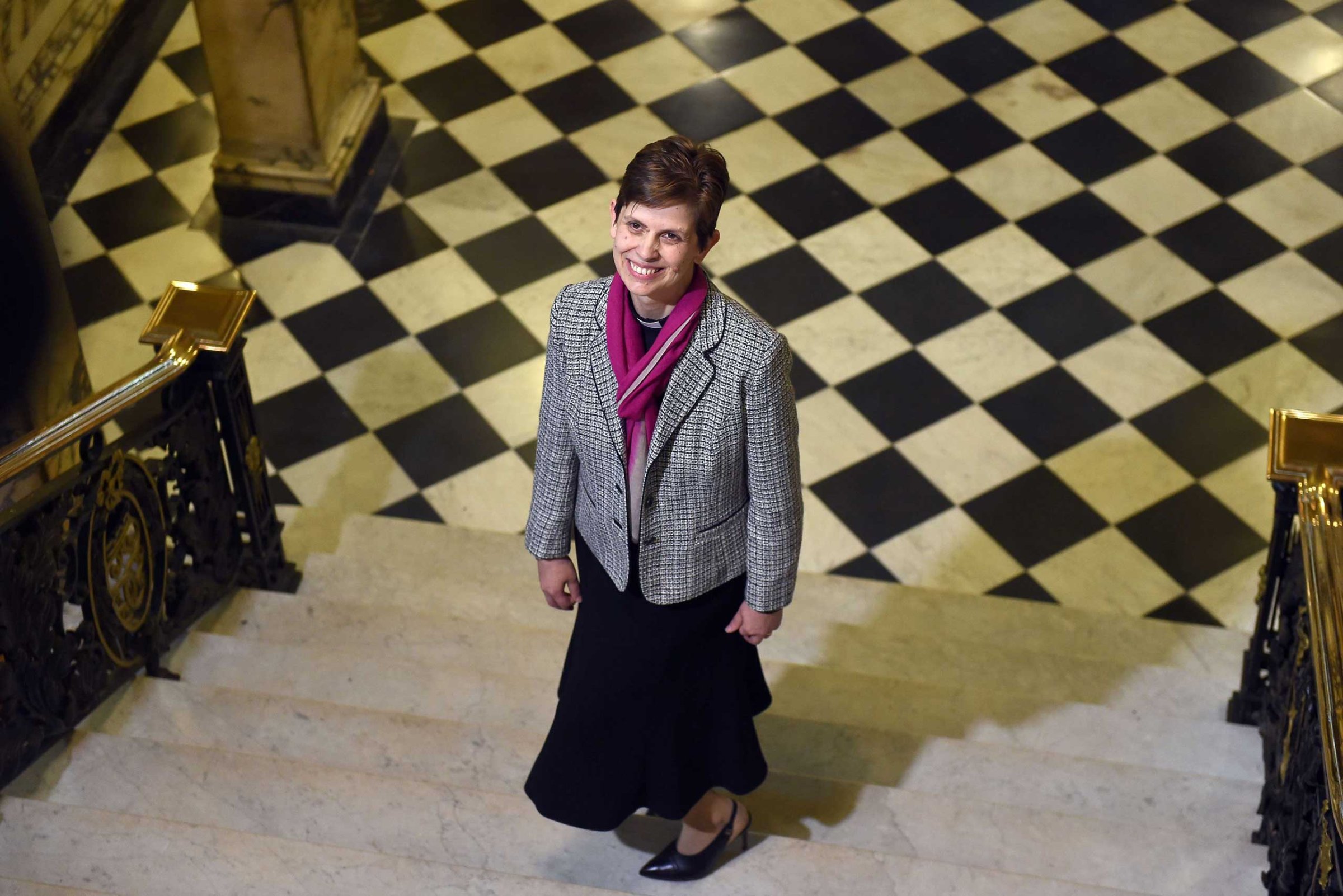
The Church of England’s stained-glass ceiling has been smashed at last.
On Wednesday, the Rev. Elizabeth Lane was named as the first female bishop in the Church of England, just a month after the church made a change to its canon law to allow female bishops. Beginning on Jan. 26, Lane will serve as Bishop of Stockport, an assistant bishop in the Diocese of Chester.
The Church of England first allowed female priests in 1992 and the battle to have female bishops began shortly after. Female bishops are already common in the Anglican churches in Canada, the U.S. and Australia, but in the Church of England traditionalists argued that only men should serve in the role of bishops, claiming it was sanctioned by scripture. Others argued that allowing female bishops was ethical and necessary to keep the church relevant. In July, the church’s legislative body, known as the General Synod, voted to allow female bishops and formally enacted a change to canon law in late November.
So who is the woman who will be the Church of England’s first female bishop?
Lane — who goes by “Libby” — was ordained as a deacon in 1993 and a priest in 1994 after being educated at the University of Oxford and trained for ministry at Cranmer Hall, a theological college at Durham University in north-east England. Since 2010 she has been the Dean of Women in Ministry for the diocese of Chester, a post created to support other women within the church. As a bishop’s selection advisor since 2003, she has spent the last ten years making recommendations to the church about candidates offering themselves for ordination.
Speaking at a town hall on Wednesday in Stockport, Lane said that it was a “remarkable day for me and a historic day for the Church.” She continued: “On this historic day as the Church of England announces the first woman nominated to be bishop I am very conscious of all those who have gone before me, women and men, who for decades have looked forward to this moment.”
The Archbishop of Canterbury, Justin Welby, has backed the push for women bishops. He issued a statement about Lane’s appointment on Wednesday, saying: “Her Christ-centered life, calmness and clear determination to serve the Church and the community make her a wonderful choice. She will be bishop in a diocese that has been outstanding in its development of people, and she will make a major contribution.”
Lane’s appointment, which was approved by the Queen, was also endorsed by the U.K.’s Prime Minister David Cameron, who congratulated Lane in a statement on Wednesday, saying: “This is an historic appointment and an important step forward for the Church towards greater equality in its senior positions.”
While Lane’s appointment is being lauded as a moment of progress, the church still has a way to go until it reaches gender equality. As the Guardian reports: “About half of female clergy are unpaid. They are also less likely to hold senior positions… [and] only three of the 44 English cathedrals are run by women today and the overwhelming majority of female clergy are not running their own parishes.”
But having a woman bishop is a significant first step. For her part, Lane seems to believe her new role could lead to further appointments for women, telling the Telegraph: “Today I pray will not be simply about one woman called up a new ministry in the church but much more than that, an opportunity to acknowledge all that has gone before and to look ahead to what is still to be done.” It’s that resolve to look to the future that allows other women to believe Lane won’t be the Church of England’s only female bishop.
More Must-Reads From TIME
- The 100 Most Influential People of 2024
- Coco Gauff Is Playing for Herself Now
- Scenes From Pro-Palestinian Encampments Across U.S. Universities
- 6 Compliments That Land Every Time
- If You're Dating Right Now , You're Brave: Column
- The AI That Could Heal a Divided Internet
- Fallout Is a Brilliant Model for the Future of Video Game Adaptations
- Want Weekly Recs on What to Watch, Read, and More? Sign Up for Worth Your Time
Contact us at letters@time.com